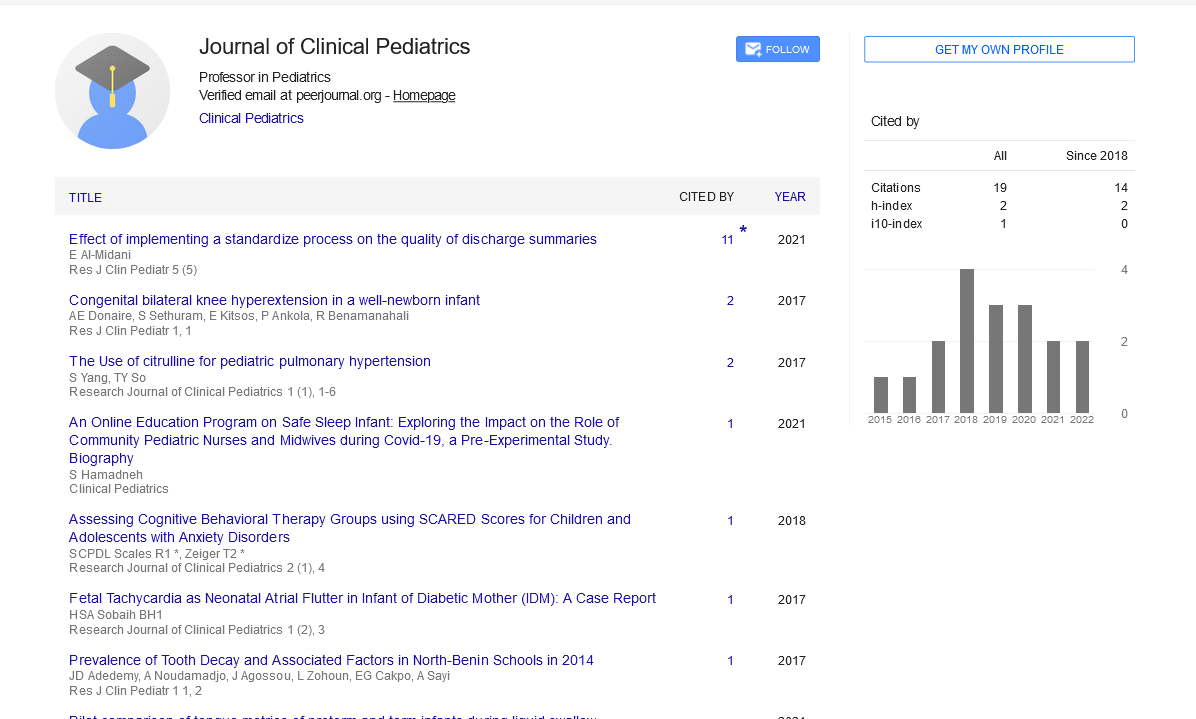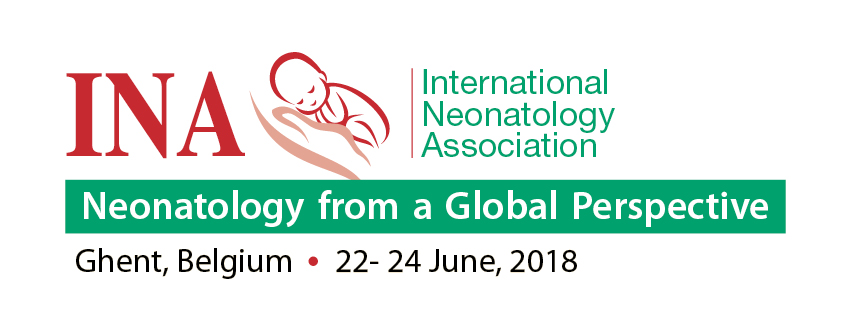Short Communication, Res J Clin Pediatr Vol: 7 Issue: 4
Importance of Pediatric Pulmonary Medicine: Its Diagnosis and Treatment Methods
Sara Skeen*
1Department of Pulmonary Medicine, Tulane University, Tulane, USA
*Corresponding Author: Sara Skeen,
Department of Pulmonary Medicine, Tulane
University, Tulane, USA
E-mail: skeen_sara@tulane.edu
Received date: 27 November, 2023, Manuscript No. RJCP-24-128404;
Editor assigned date: 30 November, 2023, PreQC No. RJCP-24-128404 (PQ);
Reviewed date: 07 December, 2023, QC No. RJCP-24-128404;
Revised date: 21 December, 2023, Manuscript No. RJCP-24-128404 (R);
Published date: 28 December, 2023 DOI: 10.4172/rjcp.1000166
Citation: Skeen S (2023) Importance of Pediatric Pulmonary Medicine: Its Diagnosis and Treatment Methods. Res J Clin Pediatr 7:4.
Description
Pediatric Pulmonary Medicine is a specialized branch of medicine that focuses on the respiratory health of infants, children, and adolescents. It deals with the diagnosis, treatment, and management of various respiratory conditions affecting this specific age group. This field is important in addressing a wide range of pulmonary disorders, from common respiratory infections to chronic conditions and congenital anomalies that impact a child's breathing and lung function [1].
The significance of pediatric pulmonary medicine lies in its dedication to the unique needs of young patients. Children's respiratory systems are still developing, making them more susceptible to certain conditions and requiring specialized care tailored to their age and developmental stage. Proper management of respiratory issues in childhood is essential to ensure optimal lung function and overall health as the child grows [2].
Scope of practice
Pediatric pulmonologists are trained to diagnose and manage a variety of respiratory conditions in children, including but not limited to:
Asthma: A prevalent condition characterized by recurrent episodes of wheezing, coughing, chest tightness, and shortness of breath. Management involves identifying triggers, prescribing appropriate medications, and educating both the child and their caregivers about asthma management.
Cystic fibrosis: A genetic disorder affecting the lungs and digestive system. Treatment includes airway clearance techniques, medications to prevent and manage lung infections, and nutritional support [3-5].
Chronic lung diseases: Conditions like Bronchopulmonary Dysplasia (BPD) in premature infants or conditions that affect lung development, which require specialized care and management.
Respiratory infections: Diagnosing and treating various respiratory infections like pneumonia, bronchiolitis, or tuberculosis in children [6-8].
Sleep-related breathing disorders: Including sleep apnea or other conditions affecting breathing during sleep that can impact a child's overall health and development.
Congenital anomalies: Addressing structural abnormalities or malformations of the respiratory tract present from birth, such as congenital lung malformations.
Pediatric pulmonologists utilize various diagnostic tools to assess respiratory conditions in children. These may include pulmonary function tests, imaging studies (such as X-rays or Computed tomography (CT) scans), bronchoscopy, and genetic testing, among others. Treatment strategies often involve a multidisciplinary approach, including medications, respiratory therapies, pulmonary rehabilitation, and sometimes surgical interventions.
Pediatric pulmonary medicine faces challenges like the evolving nature of respiratory diseases, the need for personalized care, and the impact of environmental factors on respiratory health. However, advances in technology, including improved diagnostic tools, novel medications, and better understanding of disease mechanisms, continue to enhance the field [9].
Advancements in research and therapies, such as targeted therapies for specific genetic conditions, minimally invasive surgical techniques, and advancements in non-invasive ventilation, have significantly improved outcomes and quality of life for many pediatric patients with respiratory disorders [10].
Pediatric pulmonologists play an important role in caring for children with respiratory issues. They work closely with a multidisciplinary team, including pediatricians, respiratory therapists, nurses, nutritionists, and sometimes surgeons, to provide comprehensive care tailored to the child's needs. Additionally, they offer education and support to families, empowering them to manage their child's condition effectively.
Pediatric pulmonary medicine is indispensable in safeguarding the respiratory health of children. The specialized care provided by pediatric pulmonologists not only alleviates symptoms but also aims to improve long-term lung function, quality of life, and overall health outcomes for young patients. Continued research, technological advancements, and a holistic approach to care ensure that children with respiratory conditions receive the best possible support and treatment.
References
- Hartig T, Mitchell R, Vries S, Frumkin H (2014) Nature and health. Annu Rev Public Health. 35: 207-228.
- Keune H, Flandroy L, Thys S, De Regge N, Mori M, et al. (2017) The need for European OneHealth/EcoHealth networks. Arch Public Health 36:64-66. [Crossref][Google Scholar][PubMed]
- Lerner H, Berg C (2017) A comparison of three holistic approaches to health: one health, EcoHealth, and planetary health. Front Vet Sci 4: 163.
- Baum F, Freeman T, Lawless A, Labonte R, Sanders D (2017) What is the difference between comprehensive and selective primary health care? Evidence from a five-year longitudinal realist case study in South Australia. BMJ Open 7: e015271.
- Croteau K, Schofield G, McLean G (2006) Physical activity advice in the primary care setting: Results of a population study in New Zealand. Aust N Z J Public Health 30: 262-267.
- Shil S, Dutta Choudhury M, Das S (2014) Indigenous knowledge of medicinal plants used by the Reang tribe of Tripura state of India. J Ethnopharmacol 152: 135-41.
- Maroyi A (2013) Traditional use of medicinal plants in southcentral Zimbabwe: review and perspectives. J Ethnobiol Ethnomed 9: 31.
- Efferth T, Kaina B (2011) Toxicities by herbal medicines with emphasis to traditional Chinese medicine. Curr Drug Metab 12: 989-996.
- Estabrooks PA, Glasgow RE (2006) Translating effective clinicbased physical activity interventions into practice. Am J Prev Med 31: S45-56.
- Annerstedt M, Währborg P (2011) Nature-assisted therapy: Systematic review of controlled and observational studies. Scand J Public Health 39: 371-88.
 Spanish
Spanish  Chinese
Chinese  Russian
Russian  German
German  French
French  Japanese
Japanese  Portuguese
Portuguese  Hindi
Hindi 
